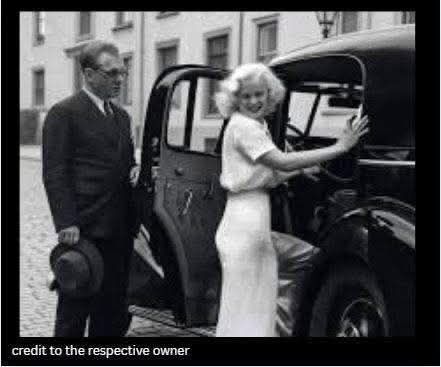In 1943, a single photograph quietly shattered Hollywood’s carefully guarded illusions. There, walking side by side, were Mae West—fearless, unapologetic, and larger than life—and Albert “Chalky” Wright, a former featherweight boxing champion. This wasn’t a staged moment or a scene from one of Mae’s daring films; it was a real-life connection that defied the rigid racial boundaries of the time.
Chalky was far more than just Mae’s driver. He was her trusted companion, her protector, and what many believe to be the great love of her life during the 1930s and 1940s. In an era when the color of your skin dictated your place in society and who you could be seen with, their relationship was nothing short of scandalous—yet deeply revolutionary. When the managers of the Ravenswood apartment building refused to let Chalky upstairs simply because he was Black, Mae didn’t waste a moment arguing. Instead, she bought the entire building. That was Mae West—bold, decisive, and fiercely unyielding.
Chalky’s loyalty was just as fierce. In 1935, when Mae became the target of an extortion plot, it was Chalky who orchestrated the sting—planting a bag of counterfeit money near Warner Bros. studios to help the police catch the culprit. Mae West never played by anyone else’s rules; she wrote her own. For her, loyalty trumped appearances, justice outweighed approval, and love defied society’s narrow expectations. She didn’t just challenge the status quo—she rewrote it. And standing beside her, not in the glare of the spotlight but in the steady shadow of unwavering devotion, was Chalky Wright—a testament to a love that dared to be real in a world that wasn’t ready to see it.
